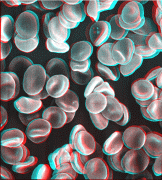Study Identifies Vaginal Bacteria's Effect on HIV
By growing vaginal skin cells outside of the human body, a team of researchers has pinpointed which bacteria fight against HIV.

By growing vaginal skin cells outside of the human body, a team of researchers has pinpointed which bacteria fight against HIV.
For their study published in PLOS ONE, Richard Pyles, PhD, and colleagues at the University of Texas Medical Branch created a vaginal model to study the symbiotic relationship between “good” and “bad” bacteria and vaginal skin cells. The bacterial communities, which had never been successfully grown outside of a human, allowed the researchers to measure the replication and infection rates of HIV in comparison to specific bacterial levels.
While bacteria associated with bacterial vaginosis stopped HIV replication, the researchers discovered several types of bacteria — including Ruminococcaceae spp, Aerococcus spp, Sneathia sanguinegens, and Atopobium vaginae — that were responsible for increased HIV replication. While “good” bacteria were present in other samples, the researchers found the aforementioned bacteria types were responsible for the increased HIV levels.
“Both types of co-culture indicated that, relative to uncolonized cultures, one of the 2 selected community state type (CST) III communities containing at least 17 distinct community members dominated by Lactobacillus iners and group B streptococcus significantly suppressed HIV replication,” the authors wrote. “Our results show that our culture system supports stable and reproducible colonization by vaginal microbiome (VMB) representing distinct community state types and that the selected representatives have significantly different effects on the replication of HIV.”
Marc Baum, BSc, PhD, co-author of the study, reflected on their unique testing methods.
“This model is unique as it faithfully recreates the vaginal environment ex vivo, both in terms of the host cellular physiology and the associated complex VMBs that could not previously be cultured,” Baum said in a press release. “I believe it will be of immense value in the study of sexually transmitted infections.”